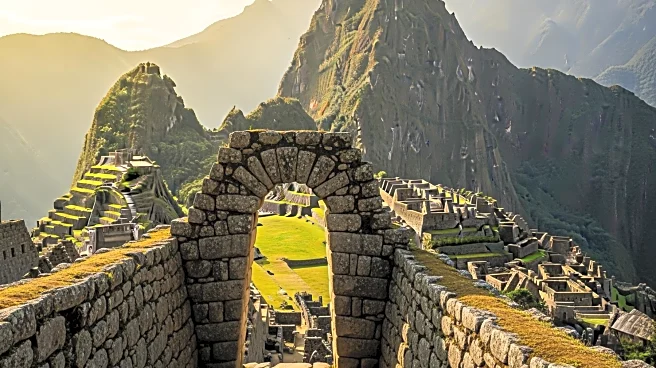What's Happening?
Pacific nations have made a fervent appeal for international support to combat the escalating threat of climate change. At a recent conference attended by over 500 delegates, leaders from these countries emphasized the urgent need for investment and partnerships to develop infrastructure that can withstand climate-related challenges. Cook Islands Deputy Prime Minister Albert Nicholas highlighted the necessity for resources and tools to manage their future effectively. The conference underscored the vulnerability of these small nations, which are on the frontline of the climate crisis, and their determination to transform their economies to enhance resilience, connectivity, and security.
Why It's Important?
The plea from Pacific nations is significant as it highlights the disproportionate impact of climate change on smaller, less economically robust countries. These nations face existential threats from rising sea levels and extreme weather events, which can devastate communities and economies. The call for investment in climate-resilient infrastructure is crucial for their survival and stability. It also serves as a reminder to larger, more industrialized nations of their role in contributing to climate change and the moral imperative to assist those most affected. The outcome of this appeal could influence global climate policy and funding priorities, potentially leading to increased international cooperation and support.
What's Next?
The conference's outcomes may prompt international stakeholders, including governments and private entities, to consider new partnerships and funding mechanisms to support Pacific nations. There could be discussions on establishing dedicated climate funds or enhancing existing ones to ensure these countries receive the necessary support. Additionally, the focus may shift towards innovative solutions and technologies that can be deployed to build resilient infrastructure. The response from major economies and international organizations will be crucial in determining the next steps and the effectiveness of the Pacific nations' appeal.
Beyond the Headlines
This development raises ethical questions about the responsibility of wealthier nations in addressing climate change impacts on vulnerable countries. It also highlights the cultural significance of preserving the way of life for Pacific communities, which are deeply connected to their natural environment. Long-term shifts may include increased migration from these regions if climate impacts worsen, leading to broader geopolitical and social challenges.










